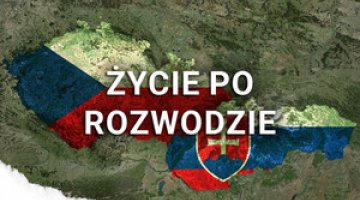Czech Republic: disputes over farm support strategy
The centre-right government of Petr Fiala, in power since December 2021, has announced that it will more effectively support small family farms, as well as start-up, small, medium and organic farmers. It also declared its support for the proposal to introduce subsidy caps for the largest companies (according to EU regulations, it is up to the states to decide whether to limit subsidies to €100,000 per farm per annum). An element of the promised so-called "deagrofertisation" of the state is declared in the government's programme, where it states that investment subsidies will be granted only to companies whose revenues from agriculture constitute at least 30% of the total amount (taking into account connections with other companies) – the Agrofert holding company of former prime minister Andrej Babiš is involved not only in agriculture but also in large-scale food processing, and large chemical and media companies (and others).
However, the Minister of Agriculture Zdeněk Nekula (on behalf of the Christian-Democratic KDU-ČSL) was more cautious in his first statements after taking office, refusing to make a clear statement that the government would reduce subsidies to large agricultural plants, opting instead to declare that it would "balance the subsidy pendulum". In practice, smaller farmers would get more support, but large agribusiness companies would benefit at a level similar to the current model. This was confirmed by the coalition council's decision of 11 January on the wording of the Czech Strategic Plan for the Common Agricultural Policy, according to which the next CAP settlement period (i.e. 2023-2027) will include no restrictions on direct payments to large agricultural companies in the Czech Republic. At the same time, small and medium-sized farms will receive additional funds in the form of redistributive payments (paid for the first 150 ha) at a level of 23% of the national pool of funds for direct payments rather than 10% (as envisaged in the previous cabinet’s draft). According to Nekula, this step offsets the lack of subsidy caps, and the negotiated rules are "a compromise that respects the situation" of Czech agriculture. Making "a significant part of the funds" dependent on the greening of agricultural production is expected to be an additional incentive to improve the way large farms are managed (it will certainly affect Agrofert - the main player on the Czech inorganic fertiliser market and the second largest producer of nitrogen fertilisers in Europe).
Commentary
- Both the discrepancies between the programme declarations and the statements made by the minister of agriculture and the coalition arrangements indicate that this issue raises more controversy in the government than could have resulted from the election campaign announcements. Lobbying by the owners of large agribusiness companies (who additionally called on 4,500 farmers to protest in front of the Office of the Government on the day of the coalition's key decisions against the introduction of subsidy caps and threatened to bring a case before the Constitutional Court if the caps are introduced) was probably also significant in this matter. The Czech agricultural lobby includes important business figures – large landowners include not only Babiš (currently No. 5 on the "Forbes" list of the richest Czechs), but also, for example, the Czech real estate magnate Radovan Vítek (No. 3 on the "Forbes" list), who is the largest owner of organic farms in the country. Besides Babiš (Agrofert) and Vítek (Spojené farmy group), the leading agricultural magnates include Gabriel Večeřa (No. 80 on the "Forbes" list, Agro-Měřín group), Josef Kolář (Rhea Holding), former minister of agriculture in the Babiš government Jiří Milek (Úsovsko a.s.) and Petr Nešetřil (Forestlaan s.r.o.). The only significant foreign player in this market is the British-Austrian Spearhead. In recent years, leading entrepreneur Tomáš Němec (No. 15 on the “Forbes” list) and financiers from the influential Slovak-Czech group J&T have also started to buy up agricultural land. This is partly due to the fact that EU subsidies have enabled the agricultural sector (which accounts for 1.6% of Czech GDP) to generate significant profits for years – CZK 17.7 bn in 2020. The price of agricultural land more than tripled between 2012 and 2020.
- The issue of limiting subsidies for large farms has been present in the Czech public debate for years. Opponents of this solution, including Andrej Babiš, point out that large farms should not be discriminated against, if only because they are typical for the Czech Republic. The country has both the largest average size of a farm in the EU (130 hectares, compared to 15 hectares on average in the EU and 10 hectares in Poland) and the greatest share of large farms (at least 50 hectares) in the utilised agricultural area (93%, compared to 68% on average in the EU and 32% in Poland). It is also pointed out that these farms may be more efficient due to the economies of scale. In turn, supporters of capping subsidies (including smaller and medium-sized farmers as well as centre-right politicians) have been putting forward this proposal in their political dispute with Babiš and stress the need to change the structure of Czech agriculture, where support for large farms perpetuates agricultural monocultures contributing to the issue of soil degradation.





